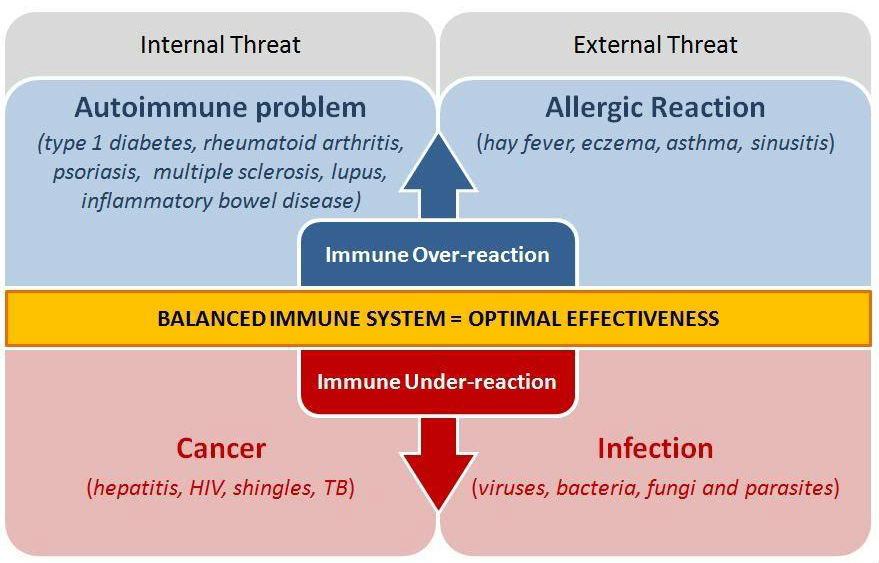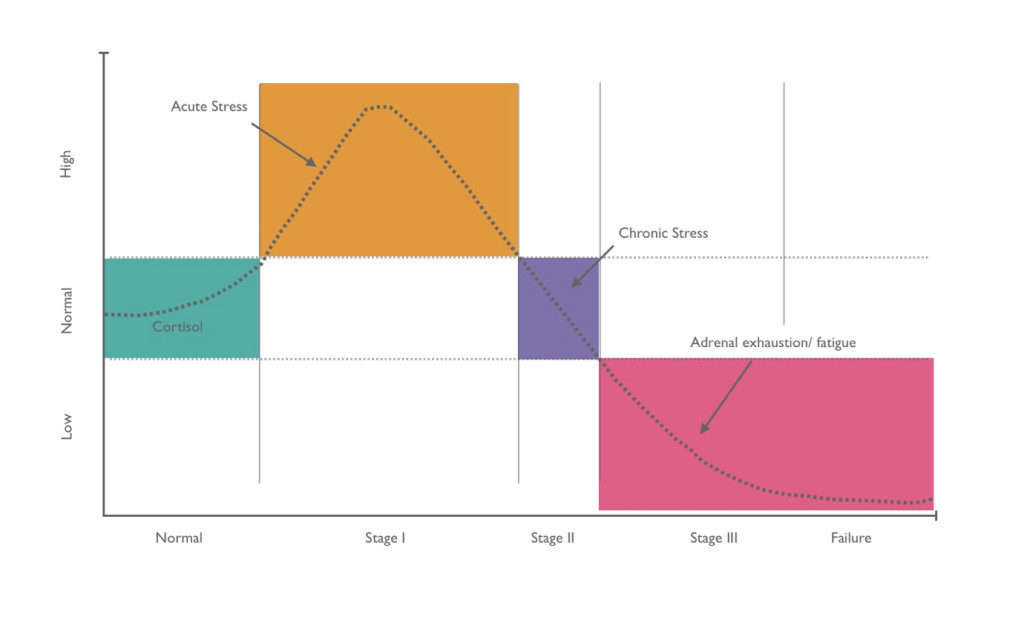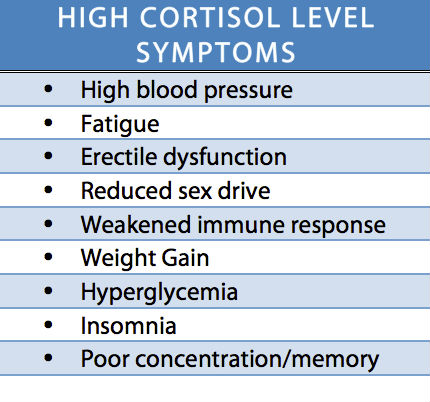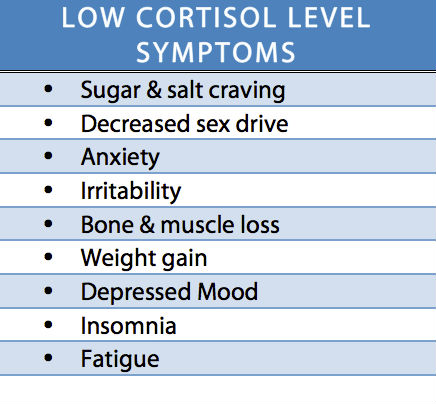Adrenal Fatigue And Your Immune System
The hormones produced by your adrenal glands, particularly the stress hormone cortisol, play an important role in regulating your immune system. If your cortisol levels go too low or too high, this can lead to regular infections, chronic inflammation, autoimmune diseases or allergies. Maintaining a balanced level of cortisol is an important part of staying healthy.

One of the many functions of cortisol is to reduce inflammation. When your body encounters a pathogen, the immune system responds by quickly attacking it. This causes inflammation, which is often a good thing (showing the immune system is working). In those with healthy immune and endocrine systems, cortisol works to moderate the inflammation caused by an immune system response, but it does not completely eliminate it.

Cortisol levels can become imbalanced during the different stages of adrenal fatigue. In fact, your cortisol levels will largely depend on which stage of the condition you have reached.

If you are still in the early stages, your cortisol levels are likely to be elevated, along with adrenaline and noradrenaline. If you are in the later stages of adrenal fatigue, your cortisol levels will be much, much lower. Neither result is beneficial for your immune system.
Read my “Stress & Fatigue” article for more information on cortisol levels.
Elevated cortisol

During the early stages of adrenal fatigue, your HPA (hypothalamus-pituitary-adrenal) axis is working hard and producing lots of stress hormones. Your cortisol level is high, which suppresses the immune system and reduces inflammation.
The body reduces the immune system’s effectiveness for a few hours, while you escape whatever physical danger is threatening you.
But the problem is that modern stress does not simply “go away” after a few hours. Today’s stressors tend to be long term and entrenched, which means that cortisol levels can stay elevated for months or years.
Needless to say, a suppressed immune system leaves us vulnerable to disease. And those of us who are under long term stress tend to suffer from excessive cold and flu viruses, as well as bacterial infections.
Lowered cortisol

In contrast, if your cortisol falls too far below the optimal level then you are completely removing the safety valve that prevents your immune system from over-reacting to threats.
During the later stages of adrenal fatigue the adrenal glands become tired, depleted and unable to produce the hormones that your body needs. Cortisol levels begin to fall rapidly and the adrenal fatigue sufferer switches from having too much cortisol to having very little indeed.
This means that the regulating anti-inflammatory effect of cortisol is absent. Low cortisol leads to increased production of pro-inflammatory cytokines, which lead to an over-activation of the immune system and severe, chronic inflammation.
The result is increased susceptibility to conditions, such as autoimmune diseases, mood disorders, allergies, infections, malignancy, chronic fatigue syndrome, chronic pain, obesity, glucose dysregulation and fibromyalgia.
Adrenal Fatigue And Infections
One of the common symptoms of adrenal fatigue is recurring immune problems and poor recovery from minor infections. Adrenal fatigue depresses the immune system because of the lack of cortisol.
Those with adrenal fatigue also tend to have more problems with leaky gut syndrome, food allergies and all manner of digestive and bowel problems. This is because the weaker your immune system, the easier it is for Candida to grow and thrive within the body.

Unfortunately, the doctor’s answer to many of these common stress-related complaints is a prescription for antibiotics, and this may lead to or further exacerbate any underling Candida infection.
Those suffering from systemic Candida infections have immune systems that are severely compromised, which leads to more physical stress on the body and further weakened adrenals.
Eventually, the adrenal glands stop producing cortisol, which in turn causes more damage to the immune system.
Many people are misdiagnosed at first, and end up taking even more antibiotics, medications, and stimulants to fight Candida symptoms which the doctor thinks is something else. The adrenal glands are further pressured without even knowing it.
Although it would be easier to treat either the adrenal fatigue or the Candida infection individually, very few people fully recover without treating both conditions simultaneously.
Read my “Stress & Fatigue” article for more information on treating adrenal fatigue.

